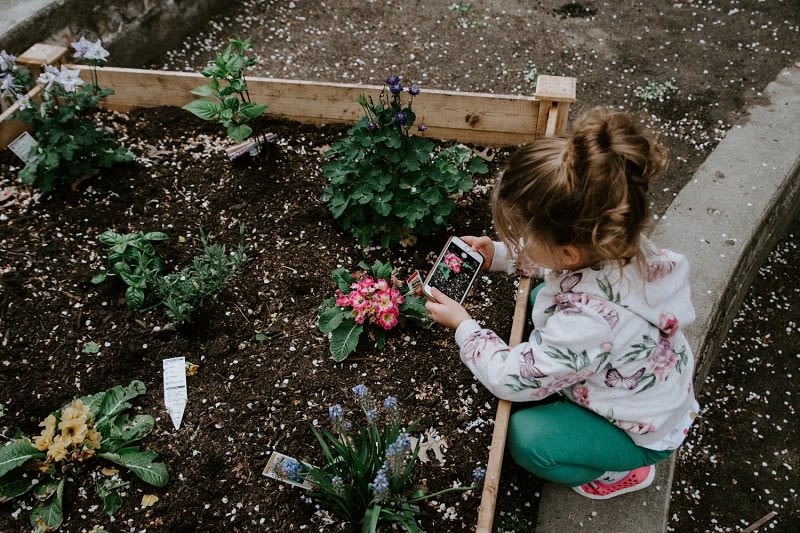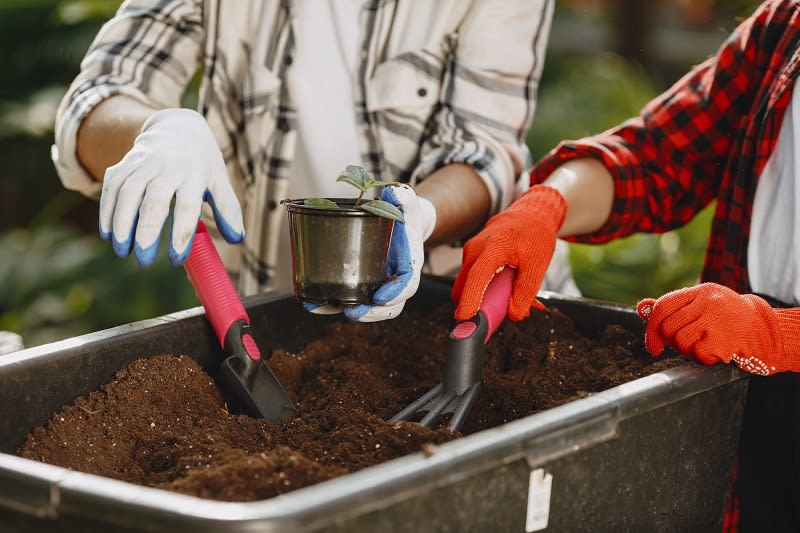Believe it or not, it’s that time of the year again! Time to drag your tools out of the shed, step out into the sunshine, and plant new life. Yes, it’s spring! There’s no time like the present when it comes to preparing your garden. Not sure how to help your garden reach its full potential? Well, we’re breaking down a few helpful tips to prepare your garden for success.
Plant Early
You don’t have to wait until the temperatures climb to get your garden started. Many home garden additions can be planted indoors until the outdoor conditions are just right. Consider starting veggies such as onions, artichokes, and potatoes inside. Then, when spring hits, they’ll be ready for the great outdoors. Some flowers, such as bulbs and specific perennials, can handle colder temperatures and are an excellent choice for early outdoor growing. Simply dig holes and drop these bulbs, and they’ll be good to go!
Clear Out Debris and Make Room
There’s nothing worse than trying to create new life amid decay and debris. Say goodbye to the past so you can welcome the future! Clear out any debris left from the winter months. That includes weeds, which may still be alive. Be sure to burn or compost them, to eliminate the potential for future growth. Sweep away any remaining leaves, and be sure to remove the mulch. Your pre-garden should be nothing but healthy soil.
Clean Your Greenhouse
Lucky enough to have an entire greenhouse? Be sure to get it tidy for new growth! Remove exterior moss or algae with a strong detergent or disinfectant. Be sure to disinfect the interior glass to prevent pests and growth from affecting your plants. Sweep away any cobwebs and debris, and your greenhouse will be a shiny new home, ready for fresh sprouts.
Order Summer Flowering Plants
Don’t save everything for the last minute. Get a head start by ordering summer flowers in the winter. Many beautiful flowers—like lilies and gladiolus—bloom in the summer. You plant them in the spring and then wait for the magic. Plus, planning your garden in the winter gives you something to look forward to! Experiment with different designs, colors, and textures.
New Planters and Garden Beds
Out with the old, in with the new! Why should your beautiful new blooms sit in a raggedy old box or bed? Invest in a different style to dress up your flowerbeds. Or, if you’re feeling crafty, you could even make one. Experiment with varying colors of wood and see what fits best for your garden. A fresh coat of paint can do wonders for your garden and add a healthy dose of curb appeal to any front facade.
Plan Your Seeds
Once you’ve developed a vision for your garden, it’s time to prepare your seeds! If you’re a seasoned gardener and have a plethora of leftover seeds, be sure to check them for mold or critters. If your seeds are good to go, make sure you’re planting them at the right time. You want to avoid planting overly mature seeds. If you’re not entirely confident, head to a local gardening shop and consult with a professional. It’s always helpful to know what grows best in your area.
Keep a Planting Calendar
Remembering what you planted and when can be tricky—especially if you’re dealing with a variety of seeds with different maturity dates. A great way to streamline your information is to keep a planting calendar. Keep it by hand or on your computer for easy access. So long as your seeds are in the correct order and you’re monitoring harvest schedules, you’re on the right track!
Collect Rainwater
For most people, summer doesn’t necessarily mean consistent rain. It would be a shame to plant a lovely garden, only to watch it dry up. A great way to avoid this is by collecting rainwater early on! Put some buckets outside during the winter/early spring and catch as much as you can. Of course, some states have regulations on this, so be sure to do your research.
Compost
Compost—you know, that collection of food waste some people keep in their kitchens? It’s a great garden addition. You can either buy it or embrace that DIY lifestyle and make it yourself. All it takes is collecting compostable waste—which is excellent for your garden and the environment. Plant the compost on top of your soil, or incorporate it deeper into the soil. You can even compost small amounts at a time if you’re worried about having excess. Compost benefits the health of the soil and helps water drain more efficiently. So, think twice before tossing that banana peel in the trash can!
Cultivate Your Soil
Gardens that have been sitting for months without tending typically need a soil refresh. All of those months of snow, sleet, and rain really can take their toll. Loosen your soil with a shovel or broad fork, being careful to remove any rocks or debris. Break up soil clumps and evenly distribute the soil. This will help new roots to grow and spread out evenly.
Manure
Manure is another excellent addition to soil. It adds nutrients to your garden and can balance the pH levels. It makes the soil more fertile and balances erosion and water runoff. Manure is also cost-effective, making it an appealing option to gardeners and farmers alike. Not sure if your soil needs manure? You can do a pH test, which can be found at most garden stores. If you do decide to use manure, it’s typically applied in the fall. Avoid sprinkling it on leafy greens as it could damage the leaves.
Organize Your Shed
Sheds are a great addition to any garden, but only if they’re organized! It’s easy to let the winter pass by and forget what’s in your shed. Take some time to open up the doors, let in the light, and figure out what needs tuning up. Throw away any debris, organize your shovels and other tools. Do individual blades need sharpening? You can use a mill file to sharpen them and then penetrate oil to prevent corrosion. Also, consider if your shed looks nice alongside your garden. Maybe it needs a paint job! A pretty shed can add great texture and character to any garden.
Looking for garden-friendly homes in Cherry Hills or Castle Pines Village real estate? Reach out to us at Anne Dresser Kocur Real Estate! Her Denver real estate expertise can help you find the home of your dreams in Mile High City.







